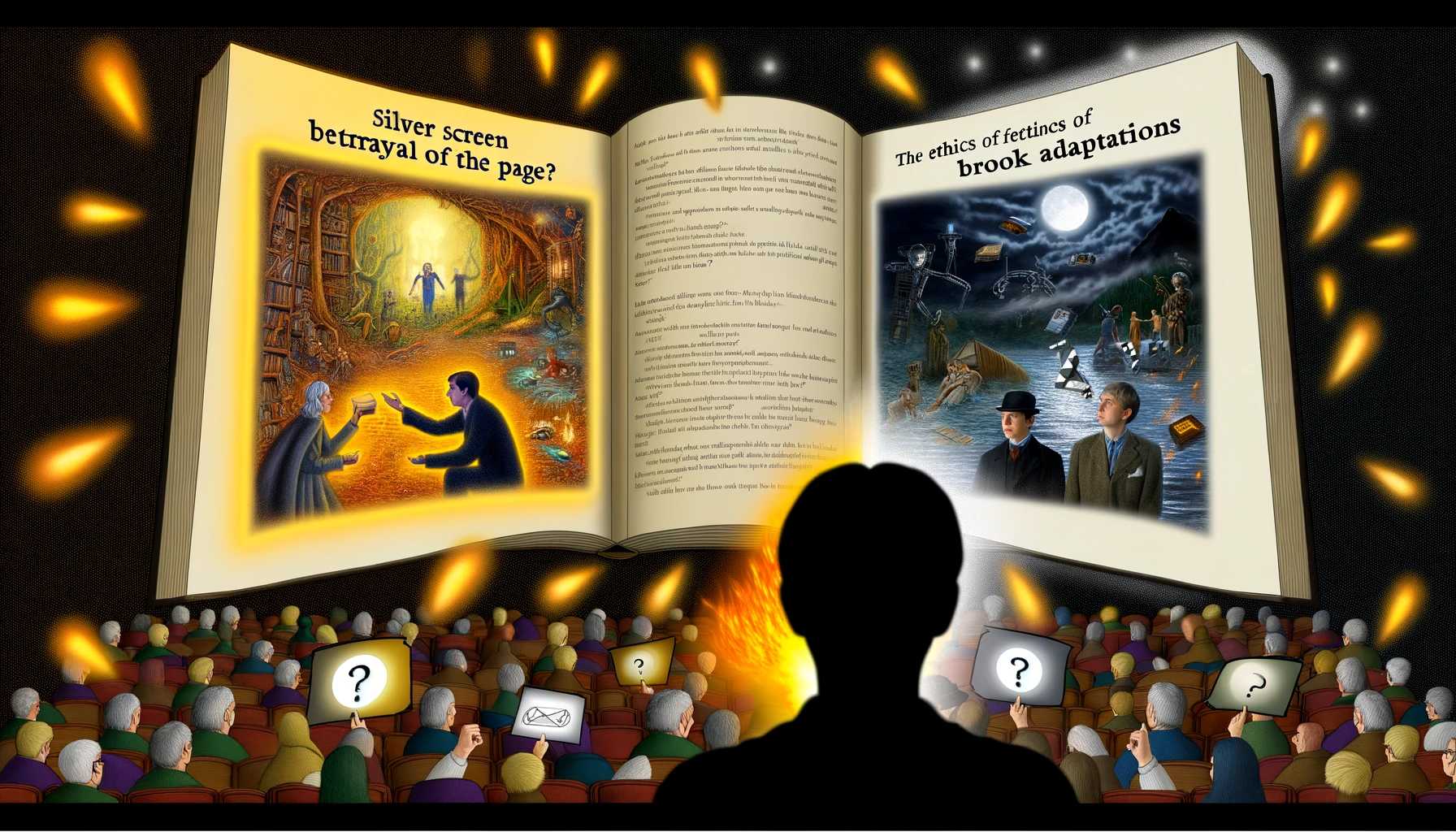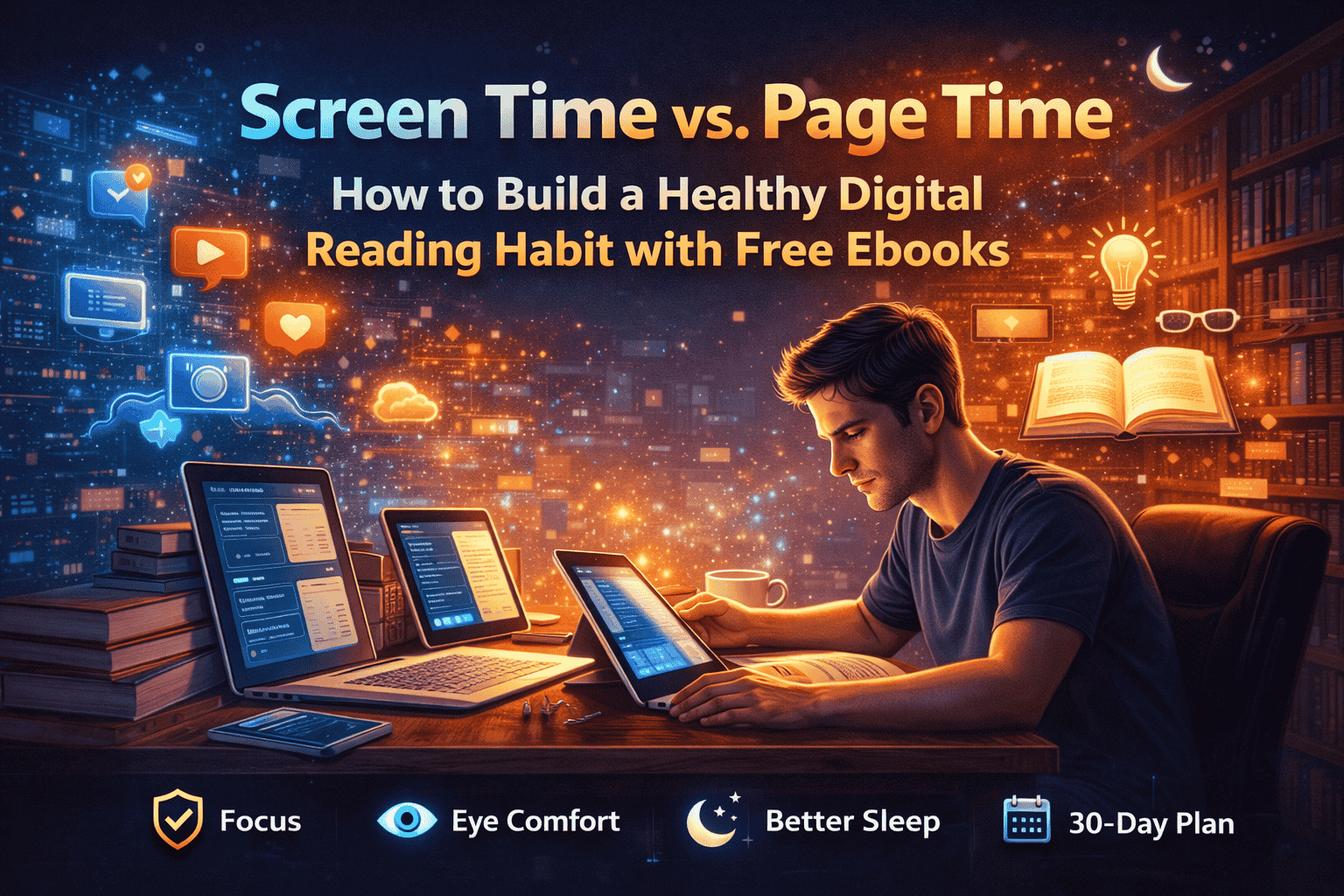Silver Screen or Betrayal of the Page - The Ethics of Book Adaptations
The allure of translating beloved novels into captivating films and television shows is undeniable. But this creative process often sparks debate: how faithfully should an adaptation adhere to the source material? Does a successful adaptation require complete loyalty, or is room for artistic license ethical? This blog post will delve into the complex world of book adaptations, exploring the ethical considerations that arise when transforming cherished stories from page to screen.
The Fidelity Debate: Capturing the Essence vs. Artistic Freedom
At the heart of the ethical debate lies the question of fidelity. Purists often argue that adaptations should meticulously recreate the book's plot, characters, and atmosphere. They believe straying from the source material betrays the author's vision and disappoints fans who yearn to see their favorite literary experiences come to life on screen.
However, translating a book's intricate details, inner monologues, and expansive world-building into a visual format with time constraints presents a significant challenge. Advocates for artistic freedom argue that filmmakers should be granted creative license to adapt the source material in ways that resonate with a visual storytelling medium. This might involve condensing storylines, streamlining character arcs, or introducing new elements to enhance the narrative flow on screen.
Finding the Balance: Respecting the Source While Embracing Adaptation
There's no one-size-fits-all approach to ethical book adaptations. Here are some key considerations that can guide the adaptation process:
- Capturing the Spirit of the Story: While plot points might change, the core themes, emotions, and messages conveyed in the book should be preserved in the adaptation.
- Character Integrity: Even if characters undergo changes, their core personalities and motivations should remain true to the author's vision.
- Respecting the World-Building: The film or TV show should create a visual universe that complements the world envisioned in the book, even if specific details are altered.
Case Studies: Examining the Ethics in Action
Let's explore some well-known adaptations to illustrate the ethical considerations at play:
- The Lord of the Rings (2001-2003): This critically acclaimed film trilogy is lauded for its faithfulness to the spirit of J.R.R. Tolkien's epic fantasy novels. Director Peter Jackson masterfully captured the grandeur of Middle-earth, preserved the core themes, and delivered an adaptation that resonated with both book fans and newcomers.
- The Shining (1980): Stanley Kubrick's adaptation of Stephen King's iconic horror novel is a cinematic masterpiece, but it deviates significantly from the source material. While some fans praise its artistic merit, others criticize it for betraying the psychological horror elements and character motivations present in the book.
- The Handmaid's Tale (2017-present): This television series based on Margaret Atwood's dystopian novel takes creative liberties by expanding the story's world and adding new character narratives. While some argue these changes dilute the book's focus, others believe they offer a richer and more nuanced exploration of the themes presented.
These examples highlight the spectrum of ethical approaches in adaptations. Some prioritize unwavering faithfulness, while others embrace creative reimagining. Ultimately, the success of an adaptation depends on its ability to deliver a compelling story that resonates with its audience, while still honoring the essence of the original work.
Beyond Fidelity: Ethical Considerations of Representation and Inclusion
The ethics of adaptation extend beyond plot and character changes. Here are some additional considerations:
- Casting and Representation: Ensuring diverse casting choices that reflect the world we live in and challenge stereotypical portrayals is crucial for ethical adaptations.
- Addressing Social Issues: Adaptations can offer opportunities to explore social issues more deeply or from new perspectives, potentially surpassing the limitations of the original work.
- Respecting Cultural Nuances: When adapting stories from different cultures, adaptations should be mindful of accurately portraying cultural nuances and avoiding insensitive misappropriations.
The Power of Adaptation: Expanding the Reach of Literature
Despite the ethical considerations, book adaptations offer numerous benefits:
- Introducing New Audiences to Literature: Adaptations can spark interest in reading the source material, especially among younger generations or those who might not be avid readers.
- Reinvigorating Classic Stories: Adaptations can breathe new life into classic works, making them relevant and engaging for contemporary audiences.
- Providing Diverse Storytelling Formats: Adaptations offer alternative ways to experience beloved stories, catering to different preferences and accessibility needs.
The Final Chapter: A Celebration of Storytelling
Book adaptations are a testament to the enduring power of storytelling. While ethical considerations are important, the ultimate goal is to create a compelling narrative that resonates with audiences. When done thoughtfully, adaptations can expand the reach of literature and foster a deeper appreciation for the written word.
Looking Ahead: The Future of Book Adaptations
The future of book adaptations is bright. Here are some exciting trends to watch:
- Rise of Streaming Services: Streaming platforms like Netflix and Hulu are offering more space for serialized adaptations, allowing for a deeper exploration of complex storylines present in longer novels.
- Interactive Adaptations: Emerging technologies might pave the way for interactive adaptations, allowing viewers to choose their own narrative paths, mirroring the choose-your-own-adventure style of some books.
- Focus on Diverse Stories: With the increasing demand for inclusive representation, adaptations are likely to showcase a wider range of voices and stories, reflecting the rich tapestry of human experience.
The Ethical Responsibility: Fostering a Conversation
The debate surrounding the ethics of book adaptations is likely to continue. However, by fostering a conversation about fidelity, creative license, representation, and ethical considerations, we can ensure that adaptations continue to enrich our cultural landscape.
Let's celebrate book adaptations as a unique art form, one that honors the source material while offering fresh perspectives and expanding the magic of storytelling for generations to come.







